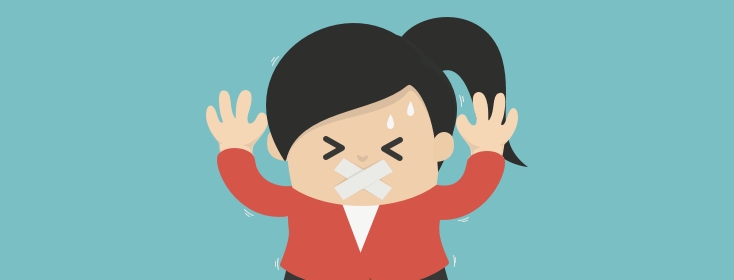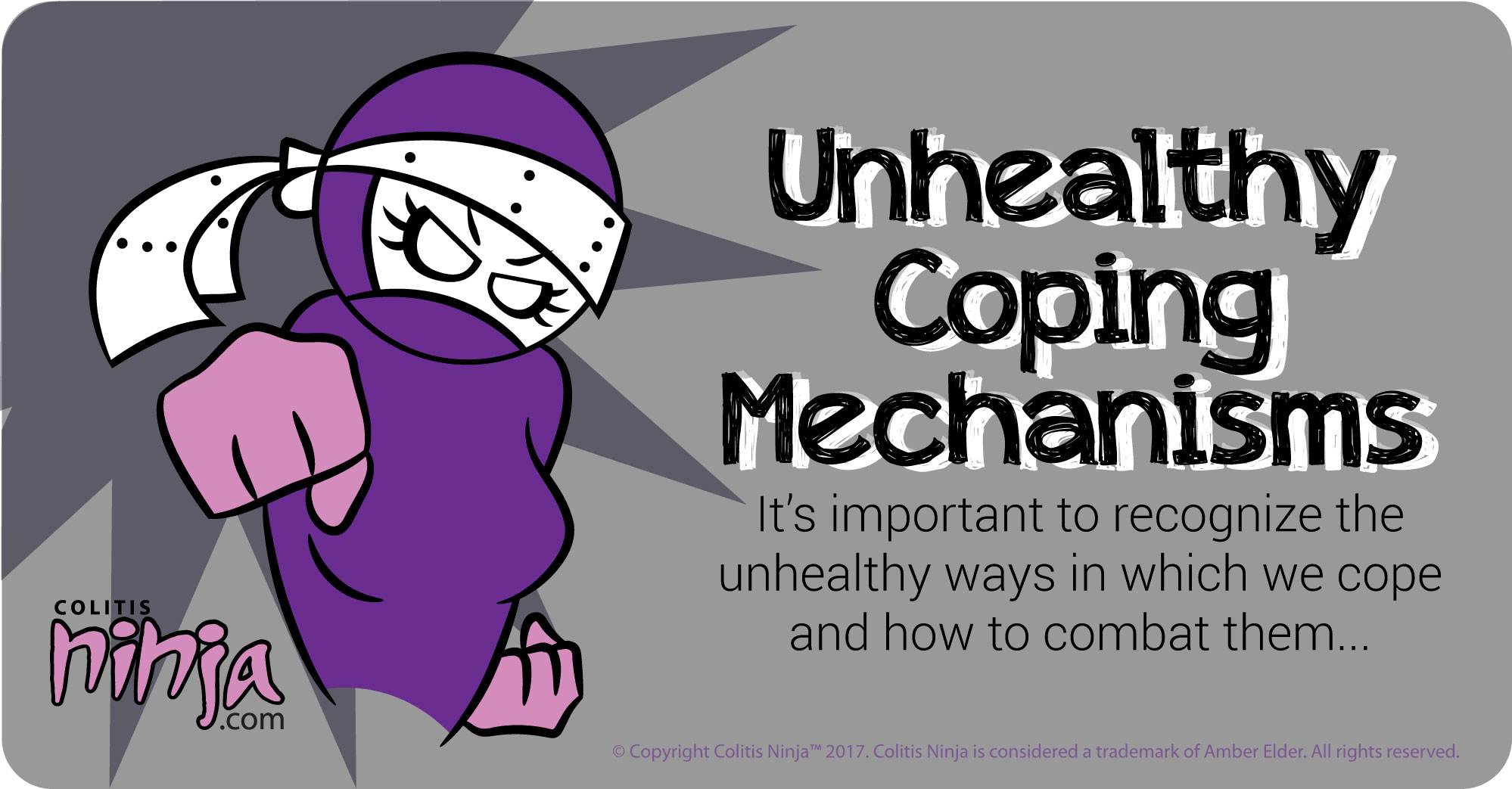Unhealthy Coping Mechanisms
Life with a chronic illness is hard. Diseases such as ulcerative colitis (UC) and Crohn’s disease (Crohn’s) are no exception.
Between the devastation of being slapped with an incurable disease and remembering to take our medications on time, just learning how to cope is a challenge in and of itself.
Sadly, it isn’t easy figuring out how to deal with the stresses that come with the diseases. It’s important to learn how to cope, but it’s also just as important to learn how NOT to cope. Today, I’m going to address 3 unhealthy coping mechanisms and how to combat them.
Unhealthy coping mechanisms and how to deal with them
Bottling up emotions
It isn’t easy to talk about Crohn’s or UC. Many patients keep it to themselves because of the embarrassing symptoms (GI bleeds, diarrhea, constipation, anal fissures–to name a few!). Bathroom habits are taboo.
Many of us also tend to bottle up the emotions that are a result of living with an incurable illness. Depression is also a sensitive topic.
Why do we bottle up these emotions? For me, I was afraid of being a burden to others. We need to nip that one in the bud. Think about it!
If someone you love is hurting, wouldn’t you want to know about it? Wouldn’t you want to help them through it? No one should suffer in silence. But far too many patients do! Help is out there!
Perhaps you could find the ear of a trusty friend. You might even consider getting professional help. There’s no shame in seeking counseling or therapy and there are many FREE counseling options available to you!
Many churches and schools offer free counseling. You can also do a search online for free counseling and several options will be available to you. Please, don’t keep things to yourself. Share your experience! It’s a powerful thing being able to get things off your chest.
Withdrawing from family and friends
Another way patients attempt to cope with inflammatory bowel disease (IBD) is withdrawing from family and friends. This kind of goes hand-in-hand with bottling up your emotions.
Again, it’s difficult to discuss the details of your disease and how it makes you feel… I believe that keeping this information from your loved ones does more harm than good. Not having open and honest discussions with the people who know you best breeds resentment and misunderstanding. It also breaks a healthy relationship and leads to a lot of misinformation about the diseases.
I understand that there are some people out there who don’t and will never “get it.” I’ve heard it said many times that you won’t fully understand living with a chronic illness unless you experience it first-hand.
Sadly, you won’t make everyone understand. But it’s worth at least trying! Sometimes you have to start with the basics. For example, everyone poops and has experienced diarrhea at some point in their lives.
When I first explained it to my (then) boyfriend, I asked him, “Have you ever seen blood in the toilet?” That got his attention and I was able to proceed from there.
Self-harm is a serious coping mechanism
This is one that is the most serious of all unhealthy coping mechanisms. Self-harm can take many forms: not caring for yourself properly, cutting yourself, drugs and alcohol, and even suicide. If there was something I could make everyone understand it is this:YOU ARE IMPORTANT.
Your life is valuable. Living with a chronic illness, you WILL feel misunderstood and oftentimes unloved. Again, not being able to express yourself properly leads to being misunderstood. And people can say some very hurtful and unloving things to you… but that doesn’t mean they don’t care and don’t love you.
Resources to seek help
If you are currently self-harming, I want to urge you to PLEASE seek help. Some good places to to start are SiOS and TWLOHA.
If you are having suicidal thoughts, PLEASE tell a friend or call the National Suicide Prevention Lifeline at 1-800-273-8255. Emotions can be deceptive… and if you feel like no one cares, it’s a LIE that needs to be addressed. Again, YOU and YOUR LIFE are valuable. Please remember that.
There’s always someone who cares about you and your wellbeing. I care very much and I want you to know that so do many others here at InflammatoryBowelDisease.net.


Join the conversation